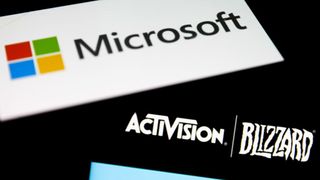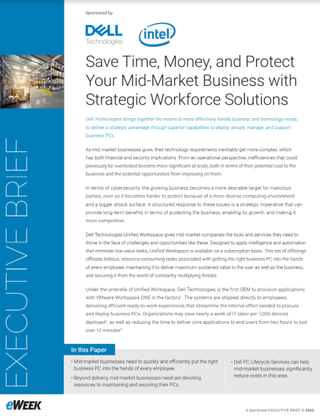CMA probe into Microsoft’s Activision Blizzard merger might derail company strategy
With the FTC also looking into the deal, the tech giant is at a crucial crossroads for how it handles the next decade of expansion across the tech sector

The Competition and Markets Authority (CMA) has intervened in Microsoft's planned acquisition of Activision Blizzard, citing concerns that the merger could impact competition within UK markets.
Microsoft first announced its intention to acquire Activision Blizzard in January, and, in April, Activision Blizzard’s shareholders approved the deal in a near-unanimous vote. The US Federal Trade Commission (FTC) previously announced it would also assess the deal, and determine whether it constitutes a monopolisation of the gaming industry or would limit competition in the tech sector.
According to the CMA announcement, a phase-one decision is expected by September 1.
Microsoft completes $19.7 billion acquisition of Nuance Google and competition watchdog agree on rules governing cookie policy changes CMA orders Facebook to sell Giphy
The outcome of the inquiry is likely to shape Microsoft’s business strategy going forward. Although much has been made of the impact that the merger will have on the particular market, as it would make Microsoft the third largest gaming company in the world, it can also be understood as a symbolic of the company’s expansion strategy for the next decade.
At $68.7 billion, the merger will be the third largest of the 2020s so far, and Microsoft’s largest to date. It continues amidst widespread coverage of workplace misconduct at Activision Blizzard, alleged to date back some years.
Increasingly, Microsoft has used acquisitions to fuel its expansion efforts, with the most significant examples not coming from the gaming space. Of course, there was much publicity in 2014 around its $2.5 billion acquisition of Mojang, the creators of best-selling game ever Minecraft.
The significance of the company’s $19.7 billion acquisition of Nuance Communications, and the myriad other cybersecurity and cloud infrastructure companies it has purchased in the past five years alone lay out the case for Microsoft’s growing use of its vast wealth to obtain firms in sectors it operates in, or otherwise seeks to.
Get the ITPro. daily newsletter
Receive our latest news, industry updates, featured resources and more. Sign up today to receive our FREE report on AI cyber crime & security - newly updated for 2024.
Any software development firm operating in a field in which Microsoft has expressed interest, be that gaming, quantum computing, or cloud system development, should seriously consider the likelihood that they could be acquired by Microsoft.
In an interview with Axios, CEO of Microsoft Gaming Phil Spencer identified it as critical to Microsoft’s next big goal, the casual gaming market: “The board of Microsoft, on the day that we got approval for ZeniMax, asked, ‘What was next?’ And the constant conversation had always been about mobile and casual.”
The mood of the Microsoft board as relayed by Spencer could be the key element of this quote, with the ‘what’s next’ attitude highlighting real enthusiasm for more such mergers and acquisitions in Microsoft’s immediate future.

Save time, money and protect your mid-market business with strategic workforce solutions
Effectively handle your technology needs with superior capabilities to secure, manage, and support business PCs
The CMA and FTC decisions will make or break this strategy, setting a precedent going forward. Microsoft will either be gifted the opportunity to aggressively expand into other corners of the tech and research sector, or be sent back to the drawing board as their diverse and frequent acquisition strategy is deemed a step too far.
In the past year, the CMA announced an investigation into Nvidia’s planned $40 billion takeover of Arm on competition grounds, given the capacity of an Nvidia-controlled Arm to do damage to the competitiveness of Nvidia’s rivals. The planned merger fell through in early February, with unwanted publicity around the deal greatly exacerbated by the CMA investigation.
IT Pro approached Microsoft and Activision Blizzard for comment.

Rory Bathgate is Features and Multimedia Editor at ITPro, overseeing all in-depth content and case studies. He can also be found co-hosting the ITPro Podcast with Jane McCallion, swapping a keyboard for a microphone to discuss the latest learnings with thought leaders from across the tech sector.
In his free time, Rory enjoys photography, video editing, and good science fiction. After graduating from the University of Kent with a BA in English and American Literature, Rory undertook an MA in Eighteenth-Century Studies at King’s College London. He joined ITPro in 2022 as a graduate, following four years in student journalism. You can contact Rory at rory.bathgate@futurenet.com or on LinkedIn.




